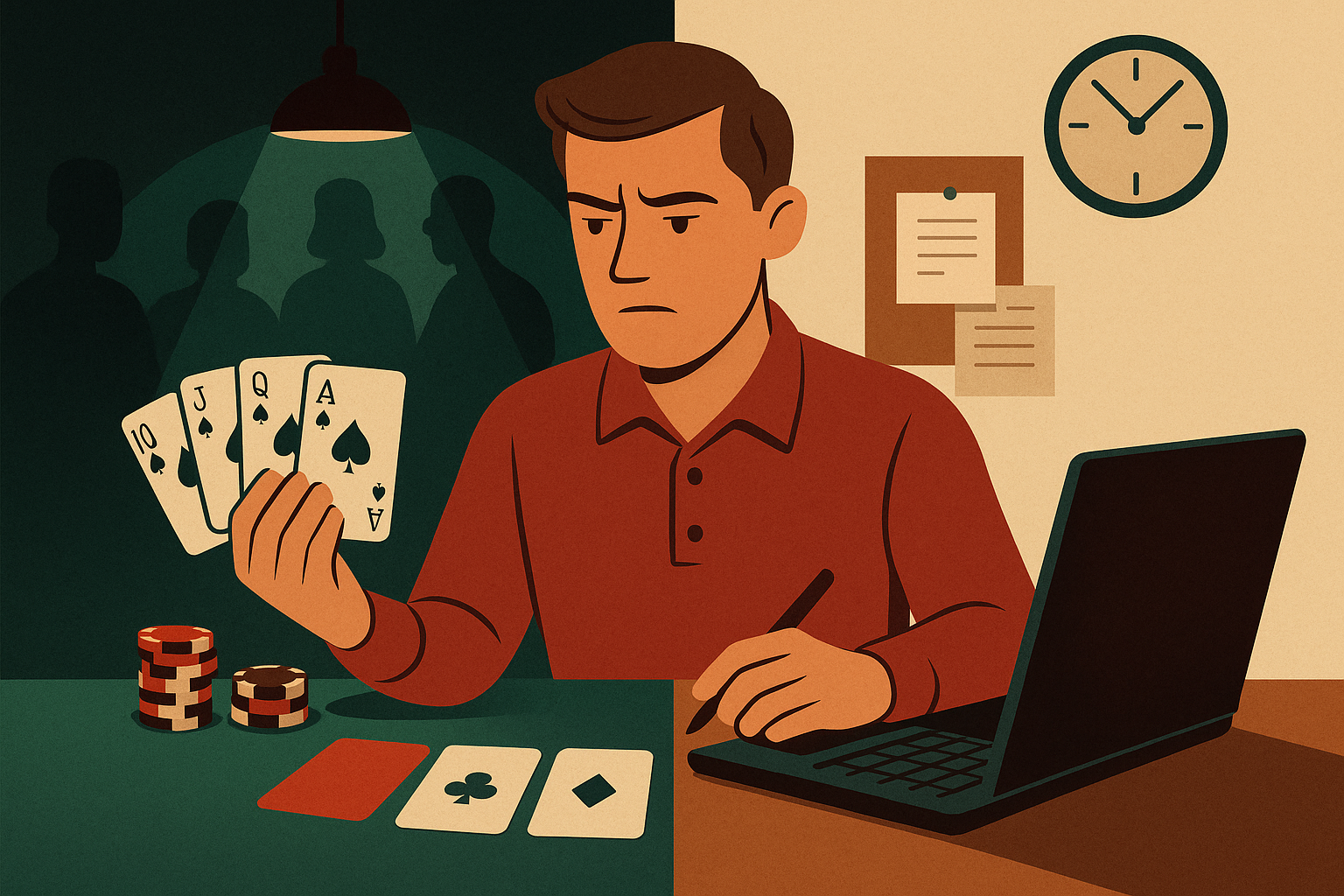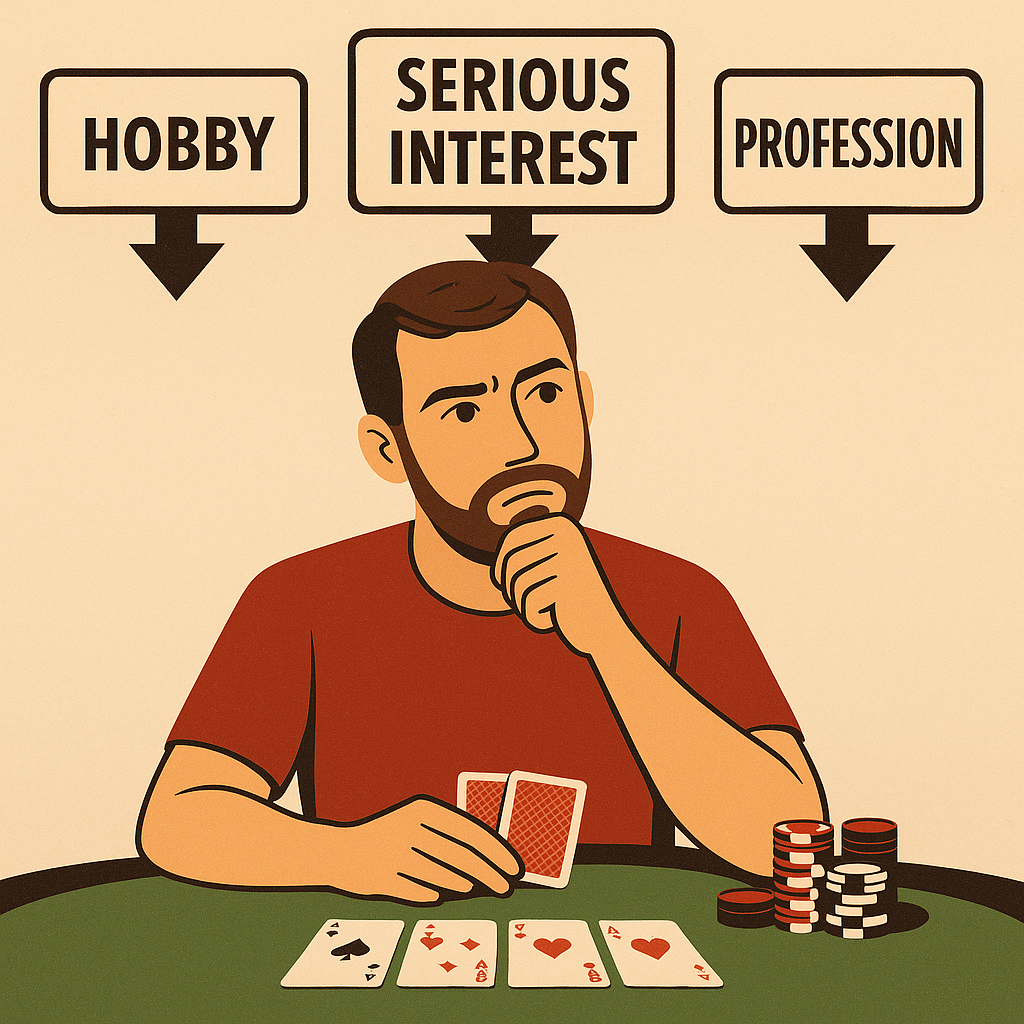Poker is a game that demands not just time, but also mental energy, patience, and focus. Because of this, maintaining balance with other life aspects can be a challenge. Many amateur and semi-professional players face the question of how to enjoy poker, improve their skills, and manage work or personal responsibilities without one side suffering.
Let’s explore a realistic way to effectively blend poker with a career and personal life. We’ll discuss practical strategies, setting priorities, organizing time, and creating habits that allow a sustainable approach to the game. When balance is struck, poker can become not just an entertaining pastime but also a mental exercise and a way to enrich everyday life.
Poker and Work: A Challenge and an Opportunity
Balancing poker with a full-time work life is a greater challenge for many players than it first appears. It’s not just about finding time to play; it’s about the ability to focus, maintain mental well-being, and progress in both areas. Like a demanding career, poker requires mental stamina, the ability to work under pressure, and adaptability to irregular “work shifts.” When you add the need for financial stability and a healthy social life, it becomes clear that it won’t work without strict priorities and a system.
Balancing poker, work, and personal life isn’t just about good time management but also a strategic approach to goals. Every player, whether an amateur improving alongside a job or a semi-pro aiming to advance, needs to know what they expect from poker and how much they are willing to invest.

The Challenge of Balancing Poker and Work
For those who take poker seriously, it can quickly become a second job. Playing itself takes hours, but that’s not all. Studying strategies, analyzing hand histories, or watching tournaments also take up significant free time. Combined with a full-time job, it creates a demanding mix that isn’t easy to sustain without negative consequences.
Poker demands not only knowledge and analytical thinking but also mental endurance and emotional stability. Variance, unpredictable game hours, loss of control during downswings, or performance pressure without income guarantees can significantly impact a player’s mental well-being. Adding work responsibilities, family obligations, and the need for rest creates tension that can easily turn into frustration or burnout.
Despite these obstacles, there are ways to manage this balance without giving up on poker or career goals. The key is conscious planning, realistic expectations, and knowing your own limits.
What Does Poker Mean to You?
Before tackling schedules, training plans, or priorities, it’s essential to clarify one fundamental thing. What role does poker play in your life? Is it a casual pastime, a serious hobby with goals of improvement, or an ambition that might one day become a profession? The answer to this question determines how much energy, time, and discipline it makes sense to invest in poker and what you’re willing to adapt to.
Those who see poker as a hobby don’t need to worry about play volume. What matters is that the game brings joy and relaxation. Conversely, if it’s a serious hobby or side income, effective planning, game study, and realistic expectations become necessary. If the goal is to become a professional, then it’s essential to approach poker like a job, focusing on system, performance, and long-term sustainability.
Defining personal goals helps prevent frustration often caused by the gap between what someone expects from poker and what they’re willing to sacrifice. Clearly defined ambitions and boundaries, like “I want to play three times a week but not at the expense of sleep or family,” create a framework where poker can be integrated into life without unnecessary tension.

How to Plan Poker Without Compromising the Rest of Life
If poker is to be a part of life in the long term, a clear plan is essential. Many players experience frustration not due to a lack of motivation but because their days and weeks lack structure. The key to balancing work, life, and poker is effective time management—not as a limitation, but as a tool that frees up space for what matters.
Begin by creating a realistic weekly plan. First, list all fixed commitments, work shifts, meetings, family obligations, rest periods, and sleep. Only then does it make sense to find time slots for poker. For some, this might be several evenings a week, for others, just Saturday mornings. Regardless of how much time is available, what’s important is that this time is set aside and adhered to.
Flexibility is crucial. Unexpected work projects or family events will arise. But as long as consistency is maintained within limits, results will follow. It’s also important that the play plan matches the goals. If there’s no room to play 30 hours a week, it’s better to adjust the target than to sacrifice sleep or work quality. This way, poker remains an enjoyable and productive part of life, not a burden.
In this article, we focused on the foundational elements of sustainable functioning, self-assessment, goal setting, and time planning. In the second part, we’ll delve into increasing productivity both at the table and beyond, preventing burnout—particularly for players caught between two worlds—and how poker influences work performance and vice versa. So, if you want to build not just a better game but also a more balanced lifestyle, stay with us. You’ll find plenty of practical tips, insights, and strategies for a sustainable poker life.




